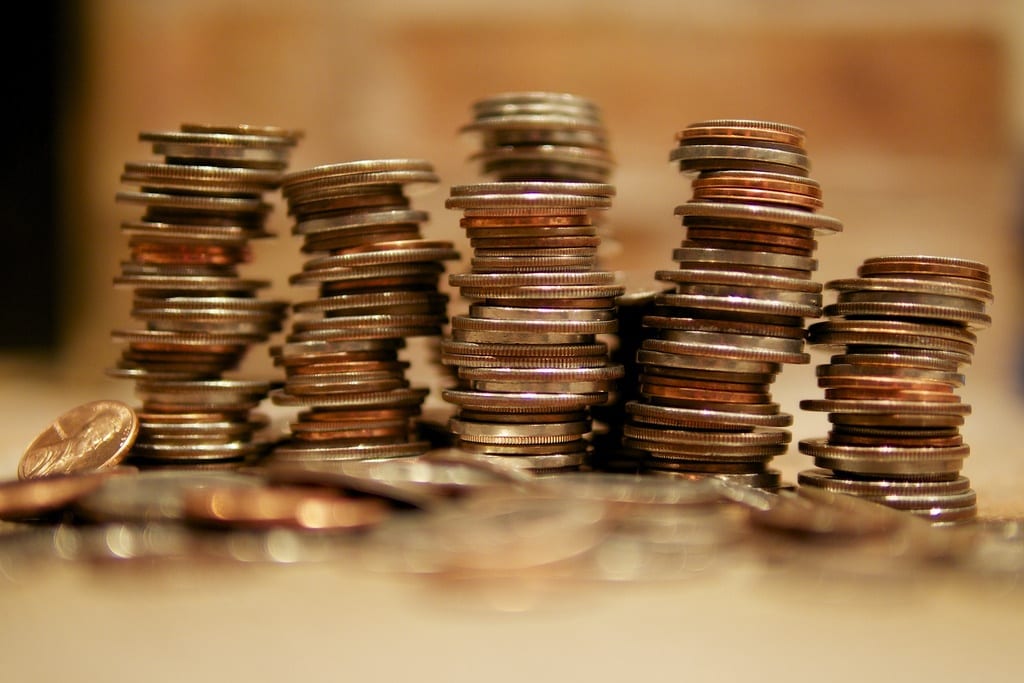Is it better to start an emergency fund or pay off your debt as quickly as possible? If you are anything like most human beings, you want a definitive push in one direction or the other. Most financial advisors and ten-year-old kids can tell you which is better to go with by simply looking at the numbers. However, like all things in life, it is not quite so simple. This is a great example of people thinking the world is in black and white.
Paying Off Debt Saves You Money
It does not take a genius to tell you that paying off your debt as quickly as possible is the best numerical choice to go with. You get one to two percent interest a year from a dollar in a savings fund while the dollar in debt collects fourteen percent interest a year. Each year you don’t pay that dollar off you are losing by twelve percent. The smart thing to do would be to pay off the dollar and start building an emergency fund now that you are out of debt in order to avoid possibly falling into debt again. That is the whole argument made by those that advise it is better to pay off your debt before creating an emergency fund.
Real Life Has Emergencies
Unfortunately, most of us cannot start from scratch with nothing saved without ending up in debt again. It is an unpleasant fact that things go wrong. The emergency fund side of the issue is a bit more realistic. Basically, you want an emergency fund set up so that you can avoid going into more debt than you have already gotten into. The idea is that, even though the debt you currently have is creating interest and destroying your credit, you aren’t adding new debt on top of the old debt. This raises a good point. Using all your money to pay off debt only to end up penniless will lead you back into debt the second an unexpected expense puts a vice grip on your finances.
Finding Balance
So then, which should be top priority? Neither. One extreme or the other will only condemn you in this situation. If you ignore credit debt, it will be 20 years before it’s paid. Ignore emergencies and you may go into bankruptcy. That is why you have to take the eclectic approach and do a little of everything. Save money in an emergency fund in order to keep from ending up with new debt, but also pay as much of the debt you already have accumulated as quickly as possible. At the very least, keep yourself from being late on credit payments, amassing more expense.
Here’s how to calculate how much needs to go into your emergency fund to make sure your credit card doesn’t end up costing you more than it needs to. Unfortunately, this has to assume nothing else major goes wrong, like a job loss or the total loss of your uninsured car. (Hint – make sure your car insurance is paid!) In the beginning, there are only so many emergencies for which you can prepare.
Pay a Little Extra on Credit, Build Your Emergency Fund
So, you need to have enough money in your emergency account for the necessities for one month. That means gasoline to get to work, the bare minimum amount you need to get by for food, the monthly payment for your car insurance, and the total minimum payment on all of your credit cards. Most utility bills will let you slide for one month without a large penalty, so if there’s something that has to wait, let it be those…but no more than 30 days. Once you have this amount, you can first focus on getting that amount saved in your emergency fund while paying the minimum plus at least $10 extra on one of your credit cards.
Attack Your Debt Full Force Only After Emergencies Are Covered
Once you have your emergency fund covering the necessities, start throwing everything you’ve got at your credit cards. You can attack the biggest first or not, depending on which method motivates you best. You’ll save more money by paying high interest cards with bigger balances first, but some people need to see one card paid off quickly to feel like they are progressing. Those folks may be better off with snowflaking, or paying of the smallest debt first.
This simple solution will solve your debt issues in a slow yet manageable fashion that, honestly, will take longer than paying credit first, at least in a perfect world. In the real world, this might be faster. You will end up debt free, with a nice cushion should anything unexpected arise.
